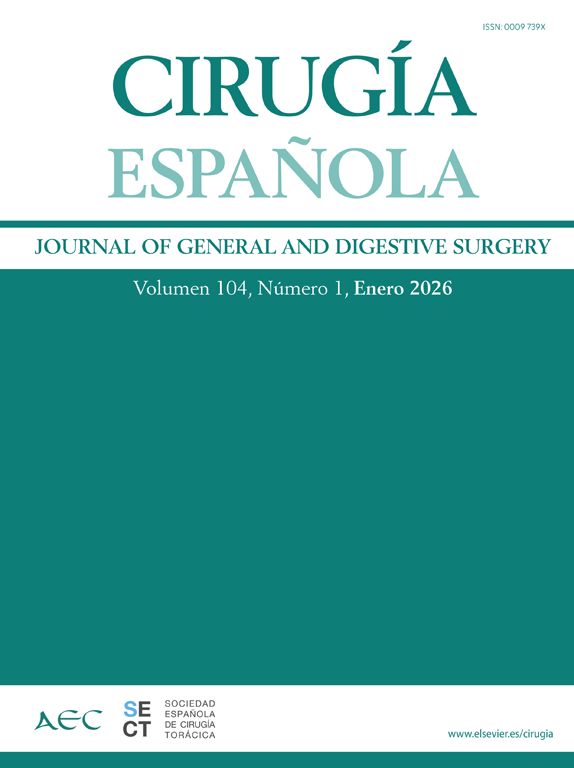Introducción. Los trastornos cognoscitivos en los pacientes quirúrgicos ancianos son frecuentes y obstaculizan su recuperación funcional. El objetivo de este trabajo es analizar la frecuencia de los trastornos cognoscitivos, en particular del delirio, y valorar su repercusión sobre la morbimortalidad postoperatoria.
Pacientes y método. Se estudiaron prospectivamente 183 pacientes ingresados en el servicio de cirugía entre noviembre de 1994 y septiembre de 1995, con una edad igual o superior a 80 años. Se valoraron las funciones cognoscitivas pre y postoperatorias mediante el test de Fosltein, tanto en los pacientes ingresados de forma electiva como de urgencias.
Resultados. De 129 pacientes sometidos a alguna intervención quirúrgica, el 20% presentaban demencia. La disminución preoperatoria de la puntuación del test de Folstein se registró en el 43,4%, y en el postoperatorio en el 52,7%. La incidencia de delirio postoperatorio fue del 37,9%. Se produjeron complicaciones en el postoperatorio en 46 pacientes (35,6%), registrándose 16 fallecimientos. Entre los pacientes hospitalizados no intervenidos, 10 tenían demencia, disminución de la puntuación del Miniexamen del Estado Mental de Folstein el 57% y delirio el 24%.
Conclusiones. El deterioro cognoscitivo en el paciente quirúrgico octogenario es elevado. Tanto en cirugía de urgencia como en cirugía programada, los pacientes que presentan trastornos cognoscitivos preoperatorios suelen tener también alteraciones cognoscitivas en el postoperatorio. El delirio ha resultado ser un problema postoperatorio frecuente, que aumenta la morbimortalidad y la estancia hospitalaria. Los pacientes ingresados de urgencias tienen más trastornos cognoscitivos y las complicaciones postquirúrgicas son más frecuentes.
Introduction. Cognitive disorders occur frequently in elderly surgical patients, impeding their functional recovery. The objective of the present report is to analyze the prevalence of these complications, particularly delirium, assessing their impact on postoperative morbidity and mortality.
Patients and method. A prospective study was carried out of 183 patients aged 80 years or more, admitted to the surgical service between November 1994 and September 1995. The preoperative and postoperative cognitive functions of patients undergoing elective and emergency surgery were analyzed according to the Fosltein test (MMSE).
Results. Of the 129 patients treated surgically, 20% presented dementia. A preoperative decrease in the MMSE was observed in 43.4% of patients and the postoperative rate was 52.7%. The rate of postoperative dilirium was 37.9%. Forty-six patients (35.6%) presented postoperative complications, and there were 16 deaths. Among the patients who were not treated surgically, there were 10 cases of dementia and the rates of reduced MMSE and delirium were 57% and 24%, respectively.
Conclusions. Patients aged 80 years or more present elevated rates of cognitive deterioration. Most of those found to have preoperative cognitive disorders also present postoperative cognitive changes, regardless of whether they have undergone elective or emergency surgery. Delirium is a common postoperative development, increasing the rates of morbidity and mortality and the length of the hospital stay. Patients brought to the emergency room present higher rates of cognitive disorders and postoperative complications.






